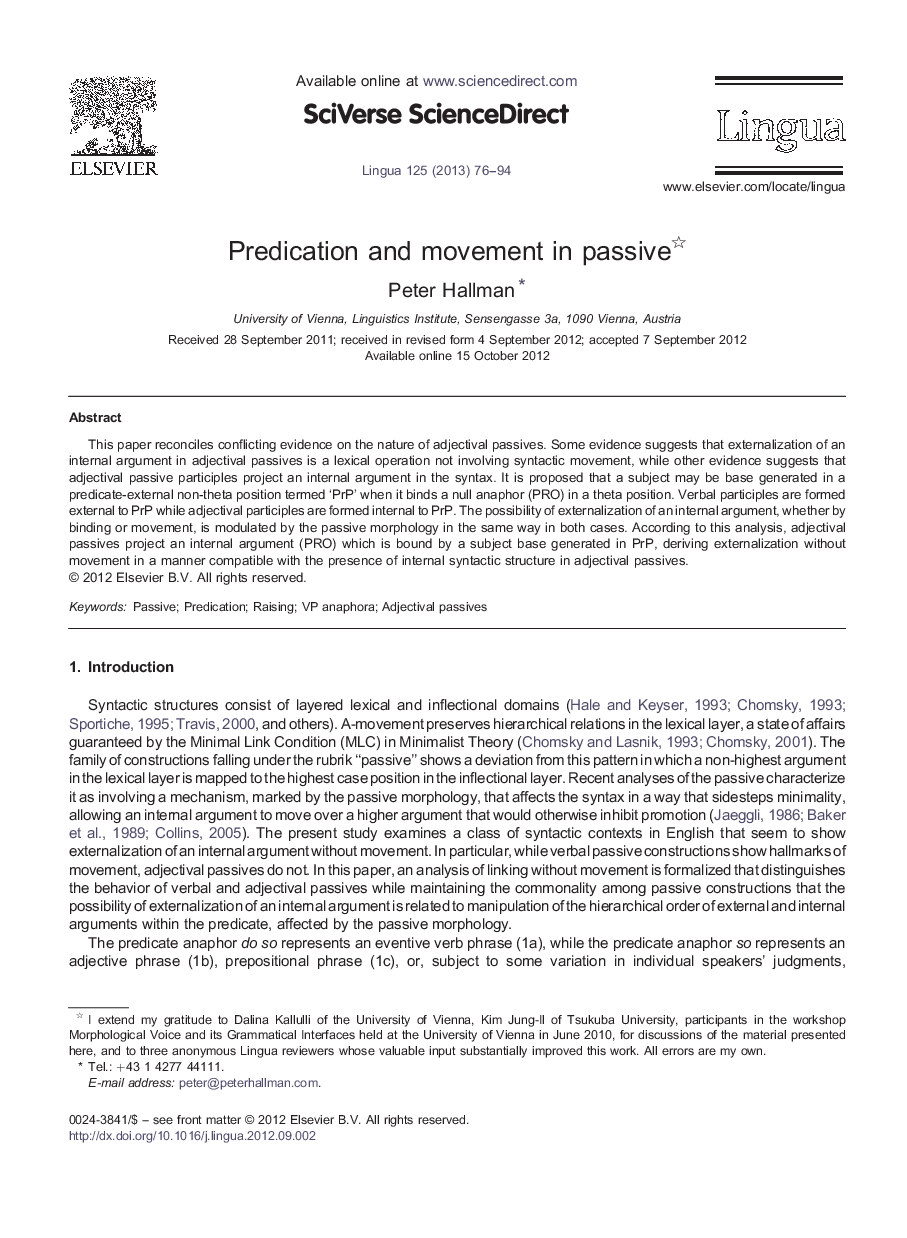| Article ID | Journal | Published Year | Pages | File Type |
|---|---|---|---|---|
| 935973 | Lingua | 2013 | 19 Pages |
This paper reconciles conflicting evidence on the nature of adjectival passives. Some evidence suggests that externalization of an internal argument in adjectival passives is a lexical operation not involving syntactic movement, while other evidence suggests that adjectival passive participles project an internal argument in the syntax. It is proposed that a subject may be base generated in a predicate-external non-theta position termed ‘PrP’ when it binds a null anaphor (PRO) in a theta position. Verbal participles are formed external to PrP while adjectival participles are formed internal to PrP. The possibility of externalization of an internal argument, whether by binding or movement, is modulated by the passive morphology in the same way in both cases. According to this analysis, adjectival passives project an internal argument (PRO) which is bound by a subject base generated in PrP, deriving externalization without movement in a manner compatible with the presence of internal syntactic structure in adjectival passives.
► Adjectival passives are formed in the syntax. ► Subjects raise from a participle-internal position only in verbal passives. ► Subjecthood is established through predication in adjectival passives. ► The verb phrase contains a subject position distinct from the external argument position.
